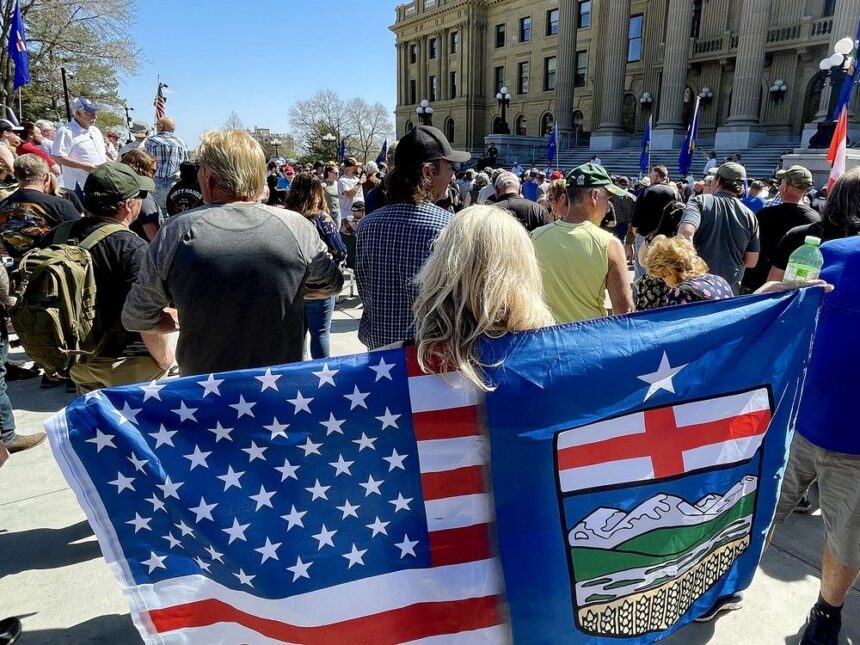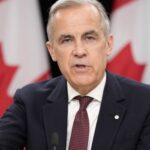In a striking display of provincial discontent, hundreds of Albertans gathered in Edmonton’s Churchill Square this weekend, waving blue and white flags emblazoned with the phrase “Alberta First” as they rallied for independence from Canada. The demonstration, one of the largest separatist gatherings in recent years, highlights the deepening tensions between the resource-rich western province and the federal government in Ottawa.
“We’ve contributed over $600 billion to Canadian coffers since 1967, and what do we get in return? Federal policies that strangle our energy sector and undermine our economic future,” declared James Morrison, lead organizer of the Alberta Independence Coalition, addressing the passionate crowd through megaphones as temperatures hovered just above freezing.
The rally comes amid escalating friction over Canada’s environmental policies, which many Albertans perceive as disproportionately harmful to their province’s oil and gas industry. Recent federal carbon tax increases and pipeline development obstacles have fueled resentment in a province where approximately 16% of GDP derives from energy production, according to Statistics Canada.
Dr. Elaine Richardson, political scientist at the University of Calgary, notes this sentiment isn’t entirely new. “Alberta separatism tends to surge during periods of economic uncertainty and when there’s perceived federal interference in provincial jurisdiction,” she explained in an interview with CO24 News. “What’s different now is the sophisticated organization behind these movements and their ability to mobilize significant numbers across demographic groups.”
Counter-protesters also made their presence known at Saturday’s event. Approximately 75 demonstrators gathered across the square with “Stronger Together” signs, arguing that separation would create devastating economic and social consequences for both Alberta and Canada.
“The separatist argument grossly oversimplifies complex economic realities,” stated economist Trevor Wilson from the Canadian Economic Institute. “An independent Alberta would face enormous challenges establishing currency, trade agreements, and international recognition—obstacles that proponents rarely address in detail,” he told CO24 Business.
Premier Danielle Smith has carefully maintained distance from separatist movements while acknowledging Albertans’ frustrations. In a statement released following the rally, her office emphasized that “while the provincial government understands citizens’ concerns about federal overreach, our focus remains on securing a fair deal for Alberta within confederation.”
Federal response has been similarly measured. A spokesperson for the Prime Minister’s Office noted that “Dialogue between provinces and the federal government is essential to Canadian democracy, but the government remains confident in the strength and future of our united country.”
Recent polling by Angus Reid indicates approximately 20% of Albertans support separation—a minority view, but one that has nearly doubled since 2018. The phenomenon represents not just regional grievance but reflects broader global trends of populist movements championing local interests against perceived distant central authorities.
The organizers announced plans for similar rallies across the province throughout 2024, with major events scheduled for Calgary, Red Deer, and Fort McMurray in the coming months. They’ve also launched a petition calling for a provincial referendum on Alberta’s place in confederation.
As Canada navigates an increasingly complex political landscape, the fundamental question emerges: can the federation evolve to address western alienation, or will the gaps between provincial and federal visions of Canada’s future continue to widen beyond reconciliation?











